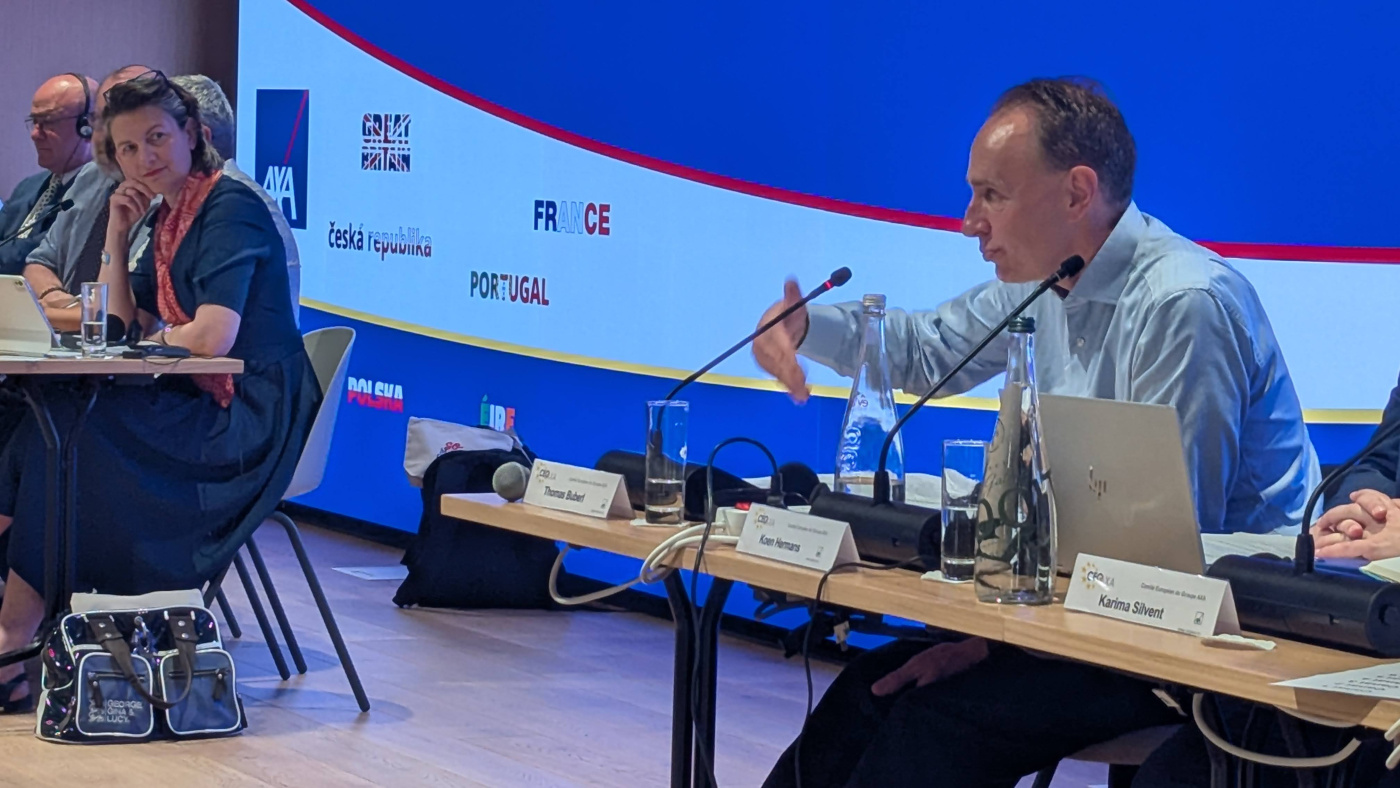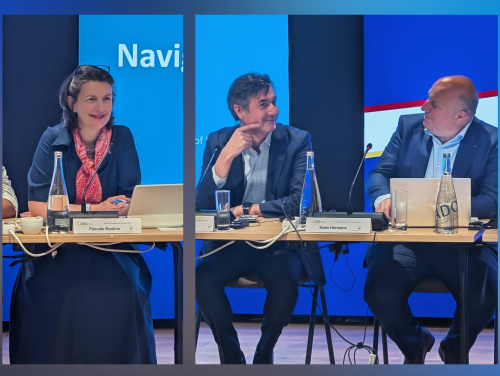Plenary June 2025
22.07.2025
Koen Hermans is delighted to be back in Matignon for this first plenary session of the year, which is a key date in the social agenda for the social partner community and the entities' social affairs network. The high turnout reflects the importance of social dialogue as a cultural pillar of the Group.
Speech by the Chairman of the EWC
Thomas Buberl welcomes the EWC members to Matignon and emphasised that the last four years had been marked by significant reconstruction and renovation work, led by Koen Hermans and his teams. He explained that these efforts had resulted in a space that reflected AXA's identity, both chic and modest, and had special significance in the context of the Group's 40th anniversary. He also mentions an exhibition tracing the history of AXA, encouraging EWC members to visit it.
The CEO highlights the unstable and uncertain global environment in which AXA operates. He mentions the conflicts in the Middle East and Ukraine, as well as the unpredictable actions of the Trump administration, which contribute to this complexity. He emphasised the need for Europe to find its way forward in the face of these challenges.
Regarding the company's performance, Thomas Buberl reported positive results, including organic growth of 8% for 2024, representing approximately £7 billion in additional revenue. He highlights AXA's continued momentum, based on a diversified business model that balances commercial and private customers and has high solvency. He attributes these successes to employee engagement and high participation in the latest Pulse survey, with improved results across several key dimensions.
He reiterates the importance of maintaining team motivation in the face of geopolitical, climate and economic instability. Reflections on the next strategic plan, with a long-term vision, aim to strengthen organic growth and build a better society. AXA seeks to strengthen its proximity to its customers, better understand their needs, and develop solutions to cover risks increasingly considered uninsurable, particularly in health, climate and cybersecurity.
In terms of future prospects, Thomas Buberl emphasises the need to consider the social contract in response to rising social spending and reduced state coverage. He stresses that insurers must strengthen their presence in pensions and healthcare. For its part, AXA is focusing its efforts while consolidating its position in emerging markets.
Finally, he mentioned the sale of AXA IM, which he is following closely. He is in regular contact with the head of BNP Paribas to ensure that the transaction goes smoothly. He thanked AXA IM's employees and delegates for their high-quality work and emphasised that this entity is joining a leading European asset manager.
Pascale RAULINE highlights the quality and maturity of the social dialogue. She believes it is important for the CEG to continue to address issues in advance, as it has always done, and to maintain the constructive spirit of social dialogue in the future.
Open question to EWC delegates
Thomas BUBERL asked delegates to share their thoughts on the strategic vision focused on organic growth and their advice on how to effectively engage employees in the AI-related transformation.
The delegates' reflections can be found in the minutes of the secretariat.
Update on Macroeconomic situation
Koen Hermans emphasises that global growth is experiencing significant turbulence due to trade tensions and political uncertainty, particularly in Europe. He invites Gilles Moec to share his expertise.
Gilles Moec talks about high stress levels in Europe and the United States, with a rebellion against globalisation, especially in the industrial sector. He warns of the impact of US tariffs, which could cause an economic slowdown in 2025, despite the stability of the US public deficit.
He points out that job creation and wage growth are continuing, but that the fall in migration flows may keep pressure on wages. The relationship between interest rates and exchange rates favours the euro, and Europe could lose 0.3 to 0.4 percentage points of growth due to customs tarifs.
In Europe, insurance is benefiting from strong disinflation and low rates, supporting purchasing power. Germany, with its programme of increased public spending, could become an engine of economic recovery.
Gilles Moec concludes that, despite the difficult outlook, European fundamentals are strengthening and Europe has the assets to get through this period.
You can find here the notes from the secretariat :
You can find here the Q&A session :

